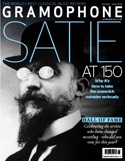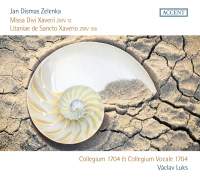Texte paru dans: / Appeared in: |
|
 |
Outil de traduction (Très approximatif) |
|
Reviewer:
David Vickers Václav Luks’s reconstruction of Zelenka’s Missa Divi Xaverii, edited pain-stakingly from the damaged autograph manuscript, has just been published by Bärenreiter. The Mass was performed at the court chapel in Dresden on December 3, 1729, on the feast day of St Francis Xavier, a 16th-century Jesuit missionary to India and Japan. It dates from exactly the time when Zelenka had futile hopes to succeed the recently deceased Heinichen as kapellmeister. He might have also had one eye on the fact that the feast of St Francis Xavier coincided with the nameday of the crown prince’s devout wife Maria Josepha, who particularly venerated the saint.
Collegium 1704’s blithe performance conveys a radiant mood in the opening strains of ‘Kyrie eleison’; the solo quartet’s plea for mercy carries through to a shapely choral response adorned by four relaxed trumpets. Hana BlaΩíková’s limpid singing produces a gorgeous dialogue with a violin and oboe d’amore in ‘Benedictus’, and her duet with Kamila Mazalová in ‘Domine Deus’ is a charming pastoral featuring two bubbling flutes. Lucile Richardot’s rapt ‘Agnus Dei’ is accompanied gently by delicate solo flute and pulsing strings. ‘Quoniam tu solus sanctus’ is a fluid quartet that seems closer to Mozart than to Bach, not least on account of its introductory ritornello juggling a trio of flutes and violas on the one hand, and another trio of oboes and bassoon on the other, while trumpets make surprisingly subtle interjections.
From the heartfelt piety of ‘Qui tollis peccata mundi’ to the thrilling rising sequences at the climax of the Sanctus (‘Hosanna in excelsis’), the choral singing is immaculate. The marginally more compact Litaniae de Sancto Xaverio, also written for the 1729 festivities, has an unusually theatrical impact – especially when a pair of horns let rip in the flamboyant quartet ‘Tuba resonans’, and when the verses refer to the saint giving aid to the shipwrecked and expelling demons in the fantastic chorus ‘Auxiliator naufragantium’. |
|
|
|
|
|
Cliquez l'un ou l'autre
bouton pour découvrir bien d'autres critiques de CD |
|




